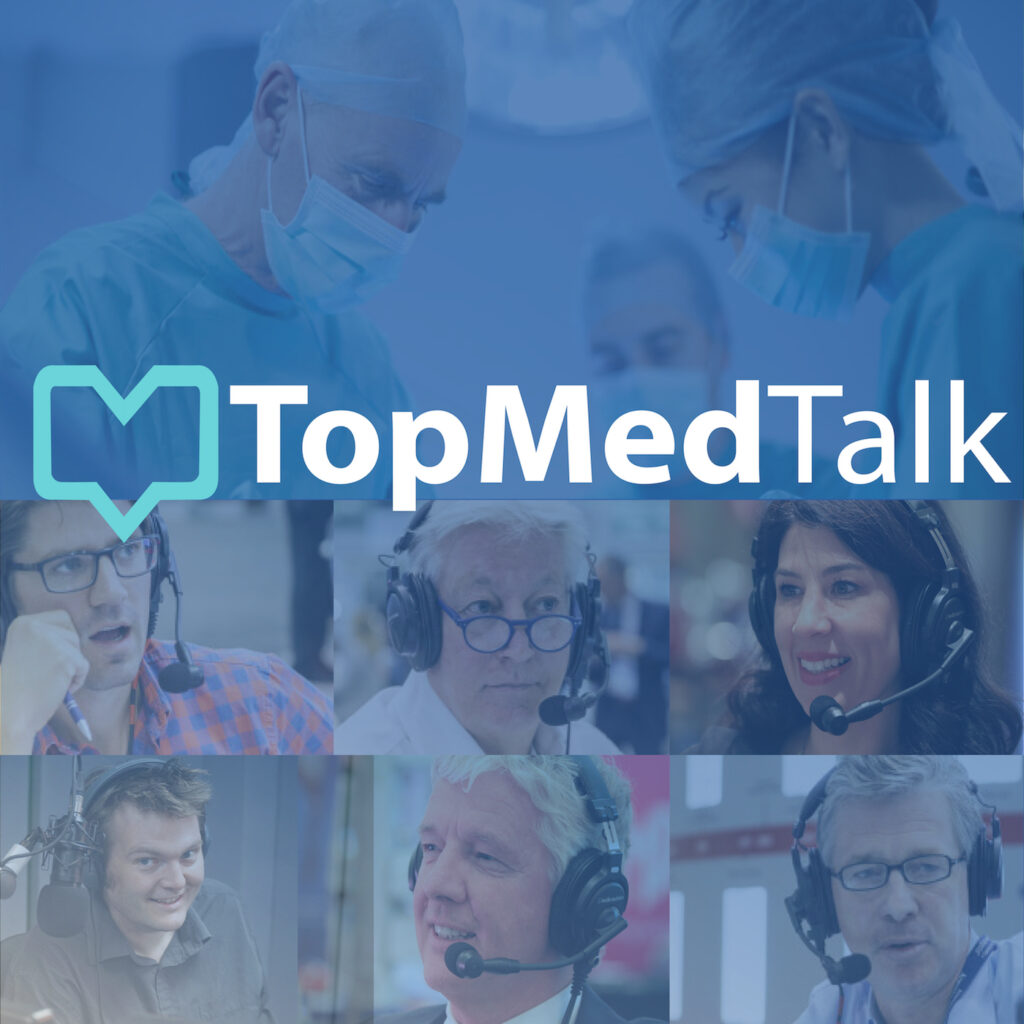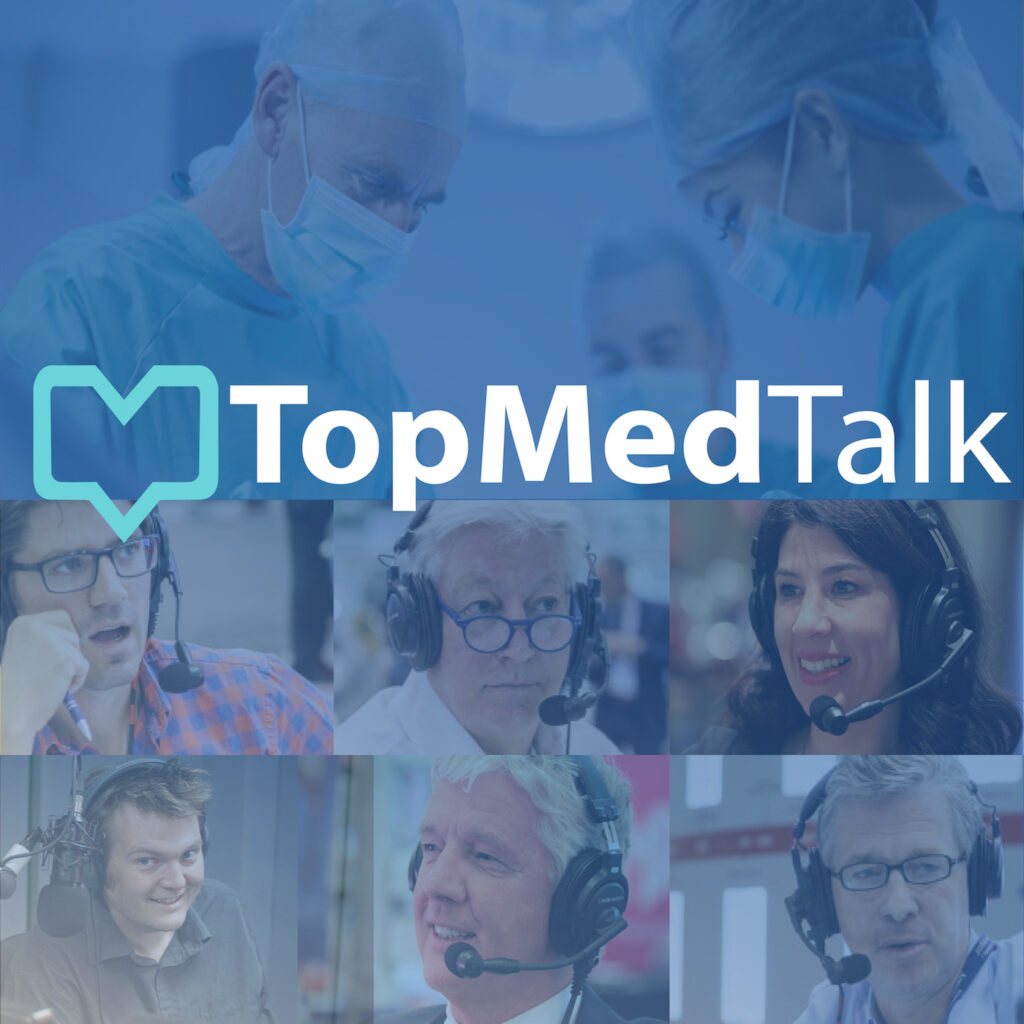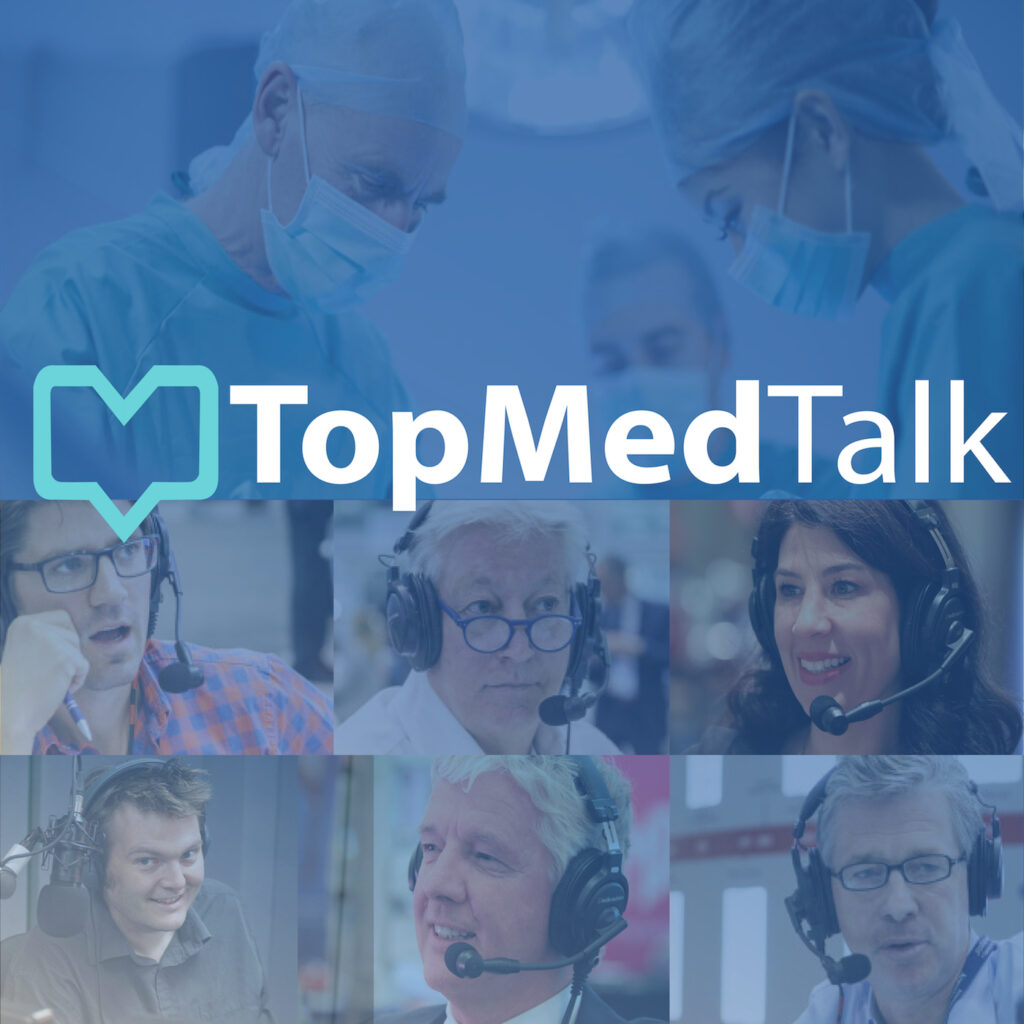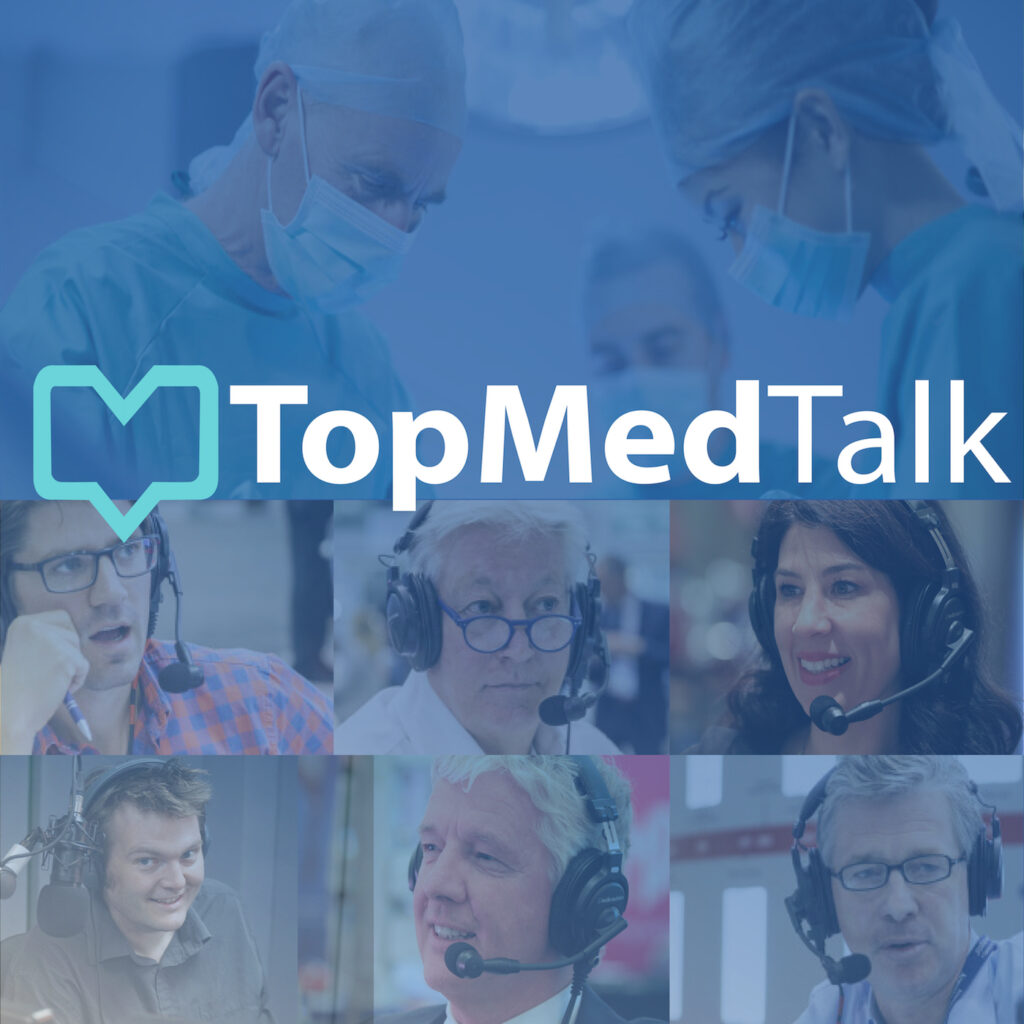Perioperative smoking cessation clinics – panel | EBPOM Chicago

“We just thought you guys would just tell us facts about how smoking is bad for us but you’re actually giving us tools and helping us practice them and implement them and it is by far nothing I have ever experienced” Smoking cessation clinics, as an essential part of a truly perioperative practice, is discussed in detail here. How do you reach the level of patient satisfaction outlined in the above quote in an efficient way which also reflects the principles of value based care, enhanced recovery after surgery and effective long term outcomes? Like this, want more? This piece directly relates to a presentation we recently enjoyed here on TopMedtalk, follow this link to hear it: https://directory.libsyn.com/episode/index/id/21964205 Presented by Sol Aronson, Emeritus Professor, Duke University with assistance from Monty Mythen, Smiths Medical Professor of Anaesthesia and Critical Care, University College London and featuring panelists; Jillian Dirkes, Program Manager, Duke Smoking Cessation Program and Andrea Pratt, Tobacco Treatment Specialist, Duke Smoking Cessation Program, Toby Richards, Professor of Surgery, UWA and Sher-Lu Pai, Clinical Director, Preoperative Evaluation (POE) clinic, Mayo Clinic College of Medicine.
Perioperative smoking cessation clinics | EBPOM Chicago

This piece looks at how and why you should be either setting up or running a smoking cessation clinic as part of a perioperative practice. How do you find patients for whom treatment is appropriate? How do you assess progress? How should staff be trained? What are the key indicators that treatment will be successful? This presentation was complimented with a panel discussion which will follow soon here on TopMedTalk. Please ensure you are subscribed to us on your podcatcher. Also, check out Evidence Based Perioperative Medicine (EBPOM) now for details of our next event near you: www.ebpom.org Presented by Jillian Dirkes, Program Manager, Duke Smoking Cessation Program and Andrea Pratt, Tobacco Treatment Specialist, Duke Smoking Cessation Program.
EBPOM 2019 | Overview of perioperative smoking cessation

Smoking is bad for you, there’s little debate about that, even among users of the drug. However, further to the widely known consequences, the bottom line in the perioperative period is that smokers are 40% more likely to die after major surgery. Do patients also know this? Tissue healing, increased risk of infection and increased possiblities of complications with the anaesthetic; with these risks in mind how do we cut through the ubiquitous, but often ignored, government health risk messaging and get patients to understand the increased risk for those undergoing surgery? How do we use smoking cessation techniques in the perioperative setting? How do we manage to start, ideally, six weeks before surgery? What is the latest thinking on the neuro psychiatric consequences of smoking cessation? How useful is the Fagerstrom test of nicotine dependence? What about “vaping”, is it better than smoking from a perioperative perspective? Presented by David Yates, Consultant in Anaesthesia and Critical Care Medicine at York Teaching Hospital, set up one of the UK’s first Perioperative Medicine Services in York, Anaesthesia, Perioperative Medicine and Pain Clinical Lead for the Yorkshire & Humber Comprehensive Research Network.
Perioperative Enhancement Teams – Part 2 | TopMedTalk

Perioperative enhancement teams have been a theme on TopMedTalk for years. This program, part two of two, goes into more detail around what could be the crucial next steps for your institution as it distinguishes itself from the pack with excellent value based care instead of excessive volume driven disasters. In this program we cover the importance of prehabilitation, the need for respect in a multidisciplinary team, cardiopulmonary exercise testing (CPET), a centre for geriatric surgery and palliative care and perioperative smoking cessation clinics. Further listening: Olle Ljungqvist, Prof. of Surgery, MD, PhD, Surgeon, Örebro University Hospital & Karolinska Institute, Sweden and Franco Carli, Prof. MD, PhD, Anesthesiologist, McGill University, Canada can be found in their original form here: https://www.topmedtalk.com/the-second-annual-prehabilitation-world-congress-part-1/ Desiree Chappell and Monty Mythen with their guest Amir Jaffer, Chief Medical Officer, New York Presbyterian/ Queens feature here: https://www.topmedtalk.com/perioperative-medicine-summit-2019-1-02-amir-jaffer/ John Whittle, assistant Professor at Duke University Medical Centre provides some essential listening on the subject of CPET here: https://www.topmedtalk.com/topmedtalk-cpet-cardio-pulmonary-exercise-testing/ Angela Bader, Vice Chair of Perioperative Medicine at Brigham and Women’s Hospital can be heard in full here: https://www.topmedtalk.com/perioperative-medicine-summit-2019-1-03-angela-bader/ James Davis, MD, Duke Smoking Cessation Program, presents and excellent talk here: https://www.topmedtalk.com/part-1-of-3-smoking-kills-more-than-all-addictive-substances-combined-plus-car-accidents/
Perioperative team: a surgeon’s view | EBPOM London 2020

This piece looks at some of the advantages to having a perioperative interdisciplinary team reducing complications, understanding and discussing risk, facilitating better shared decision making and increased patient satisfaction, even among those who – as part of this process – decide not to go ahead with an operation. It also incorporates evidence regarding what we know about COVID-19; “The risks … of the COVID-19 virus is that if people contract it during or after their surgery, they have a much worse result with perhaps 51% pulmonary complications or 24% mortality”. The World Health Organisation report mentioned in this piece, “Smoking greatly increases risk of complications after surgery”, is here: https://www.who.int/news/item/20-01-2020-smoking-greatly-increases-risk-of-complications-after-surgery The Montgomery ruling is covered on a previous TopMedTalk in more detail in “Sunday Special | Being on the right side of the law” here: https://www.topmedtalk.com/sunday-special-being-on-the-right-side-of-the-law-2/ The Centre for Perioperative Care website is an excellent resource, here is the section specifically for your patients: https://www.cpoc.org.uk/patients The Royal College of Surgeons is here: https://www.rcseng.ac.uk/ Our presenter has a website dedicated to her work here: http://www.scarlettmcnally.co.uk/ And she maintains a twitter feed – focused on medical issues – here: https://twitter.com/scarlettmcnally Presented by Scarlett McNally, Deputy Director of The Centre for Perioperative Care (CPOC) consultant Orthopaedic Surgeon, Eastbourne DGH, UK.
Models of prehabilitation in Cardiff in Wales | EBPOM 2020 London

“The people of Wales are particularly unfit”, there is a high incidence of smoking, physical inactivity, and alcohol intake. Grim news from one angle but on the other hand it’s a huge opportunity to make a massive difference in the prehabilitation stage of the perioperative process. Hear how cancer outcomes are being dramatically improved as a clear pathway of optimisation is rolled out. Presented by Rachael Barlow, National Lead, Enhanced Recovery, Prehabilitation and Optimisation, at Cardiff and Vale health board, Wales.
EBPOM London 2020 | Perioperative team: a surgeon’s view

This piece looks at some of the advantages to having a perioperative interdisciplinary team reducing complications, understanding and discussing risk, facilitating better shared decision making and increased patient satisfaction, even among those who – as part of this process – decide not to go ahead with an operation. It also incorporates evidence regarding what we know about COVID-19; “The risks … of the COVID-19 virus is that if people contract it during or after their surgery, they have a much worse result with perhaps 51% pulmonary complications or 24% mortality”. The World Health Organisation report mentioned in this piece, “Smoking greatly increases risk of complications after surgery”, is here: https://www.who.int/news/item/20-01-2020-smoking-greatly-increases-risk-of-complications-after-surgery The Montgomery ruling is covered on a previous TopMedTalk in more detail in “Sunday Special | Being on the right side of the law” here: https://www.topmedtalk.com/sunday-special-being-on-the-right-side-of-the-law-2/ The Centre for Perioperative Care website is an excellent resource, here is the section specifically for your patients: https://www.cpoc.org.uk/patients The Royal College of Surgeons is here: https://www.rcseng.ac.uk/ Our presenter has a website dedicated to her work here: http://www.scarlettmcnally.co.uk/ And she maintains a twitter feed – focused on medical issues – here: https://twitter.com/scarlettmcnally Presented by Scarlett McNally, Deputy Director of The Centre for Perioperative Care (CPOC) consultant Orthopaedic Surgeon, Eastbourne DGH, UK.
EBPOM 2020 London | Models of prehabilitation in Cardiff in Wales
“The people of Wales are particularly unfit”, there is a high incidence of smoking, physical inactivity, and alcohol intake. Grim news from one angle but on the other hand it’s a huge opportunity to make a massive difference in the prehabilitation stage of the perioperative process. Hear how cancer outcomes are being dramatically improved as a clear pathway of optimisation is rolled out. Presented by Rachael Barlow, National Lead, Enhanced Recovery, Prehabilitation and Optimisation, at Cardiff and Vale health board, Wales.
EBPOM 2019 | Multi-modal Prehabilitation

This panel discussion includes questions such as: In a prehabilitation service what screening tools should we use to assess nutritional risk? What tools are there related to patient self management? What advice would you give a patient about cannabis smoking cessation? Should denial of surgical procedures be used as a motivator for lifestyle change? Can the questions used in interventions sometimes be open to misinterpretation by patients? How do we assess and treat sleep disorders? If not a psychologist, what team members might handle psychological behaviour change? Does immunonutrition work? Are there sensitive approaches to addressing weight loss, physical activity and diet that the panel reccomend? Panel discussion chaired by Sandy Jack and Daniel Santa Mina, featuring, David Yates, Consultant in Anaesthesia and Critical Care Medicine at York Teaching Hospital, Chloe Grimmett, National Institute of Health Research (NIHR) post-doctoral Research Fellow and Senior Research Fellow for the Macmillan Survivorship Research Group at the University of Southampton, Chris Snowden, Consultant Anaesthetist, Freeman Hospital, Newcastle upon Tyne and Senior lecturer at the Institute of Cellular Medicine at Newcastle University, Chelsia Gillis, Registered Dietitian, Canadian Vanier Scholar, and PhD Candidate in Epidemiology at the University of Calgary, Canada, she is leading the first prehabilitation program for colorectal surgery in Alberta.
COVID 19 | If you’re still having face to face meetings – STOP NOW!

“‘The disease is not complicated, the biology is not complicated, the treatment is not that complicated; our behavior patterns and our understanding of what it is truly like to be in a pandemic is the complicated bit’ … ‘Yeah, this is not a drill'”: the firm message in this piece is clear, use the internet and stop your face to face departmental meetings now. More broadly we ask; how are things going in North Carolina, Louisville and London? Has elective surgery been cancelled yet? How are people facing the issue of personal protective equipment (PPE)? London practitioners are assuming they themselves have the virus, is this the case everywhere else? How are staff roles being changed in anticipation of the problem? There’s also a very frank conversation about the personal risks practitioners are being asked and deciding to take. Should they acknowledge and talk about their safety for both themselves and their loved ones? We wrap on a conversation about the reported interest in smoking cessation that has grown in the last few days. Presented by Desiree Chappell and Monty Mythen with TopMedTalk regular and occasional co-host, Sol Aronson, tenured Professor at Duke University. Thank you to our sponsor Edwards Lifesciences. Edwards clinical education (ECE): https://www.edwards.com/clinicaleducation
